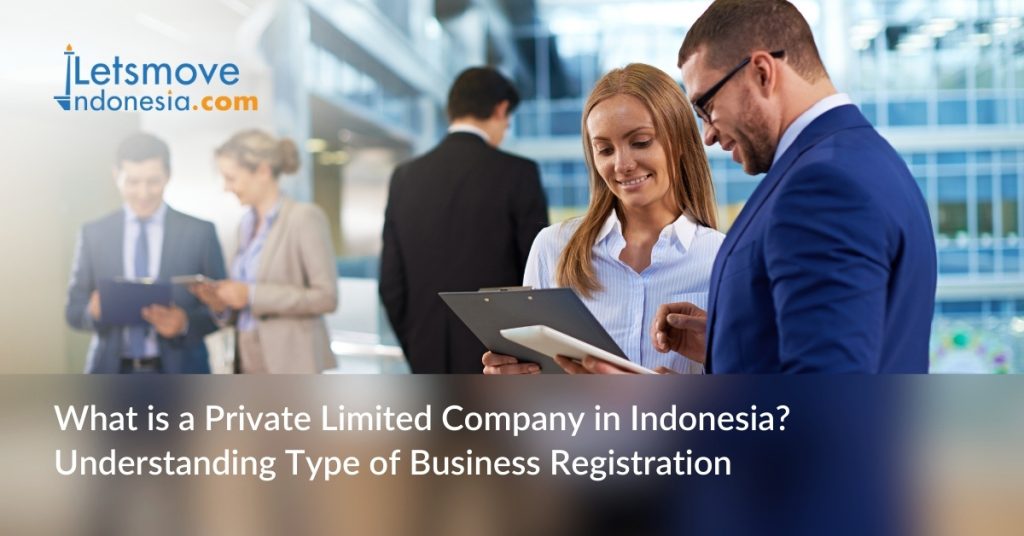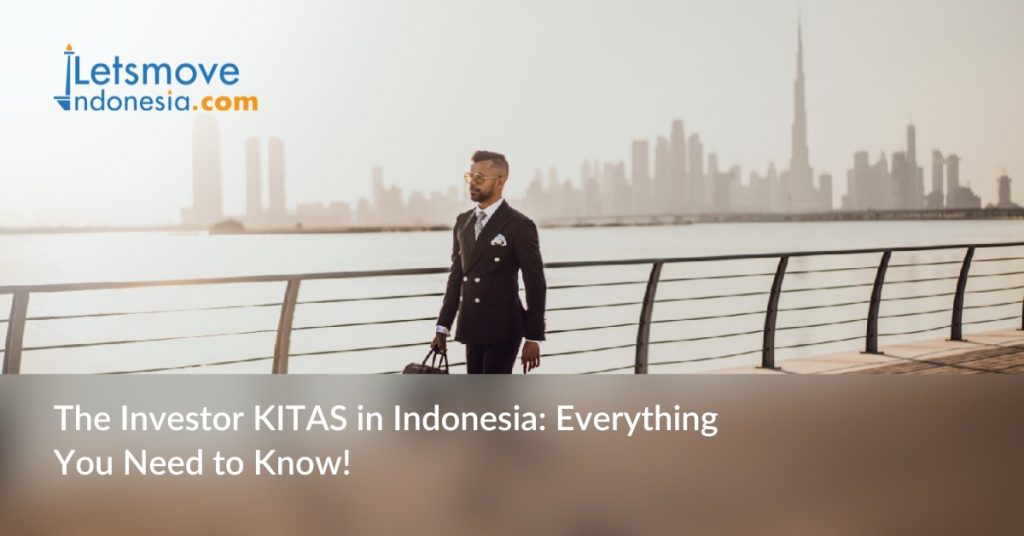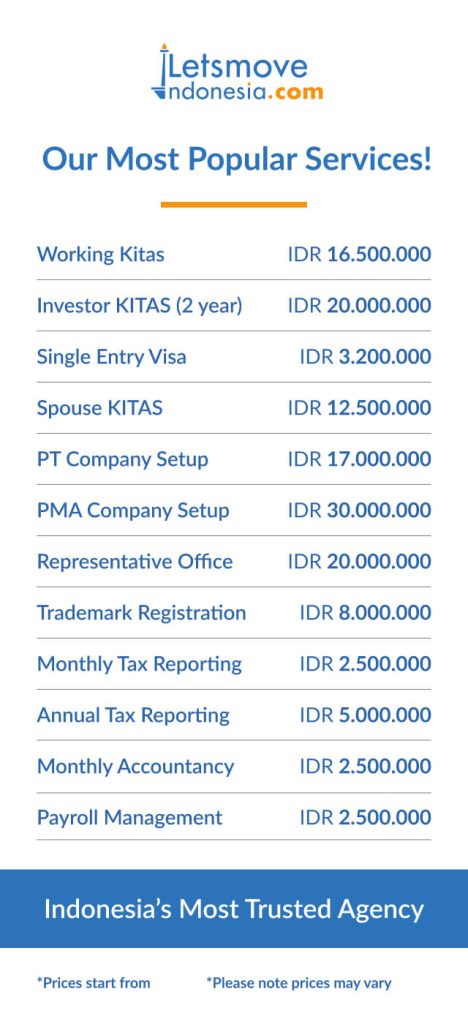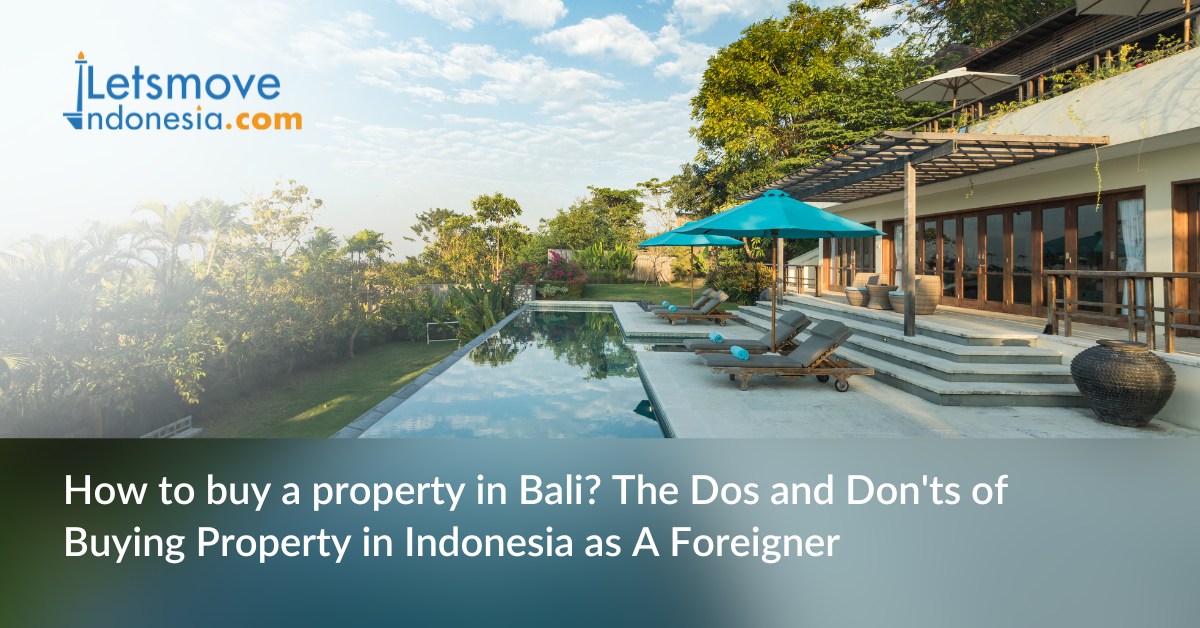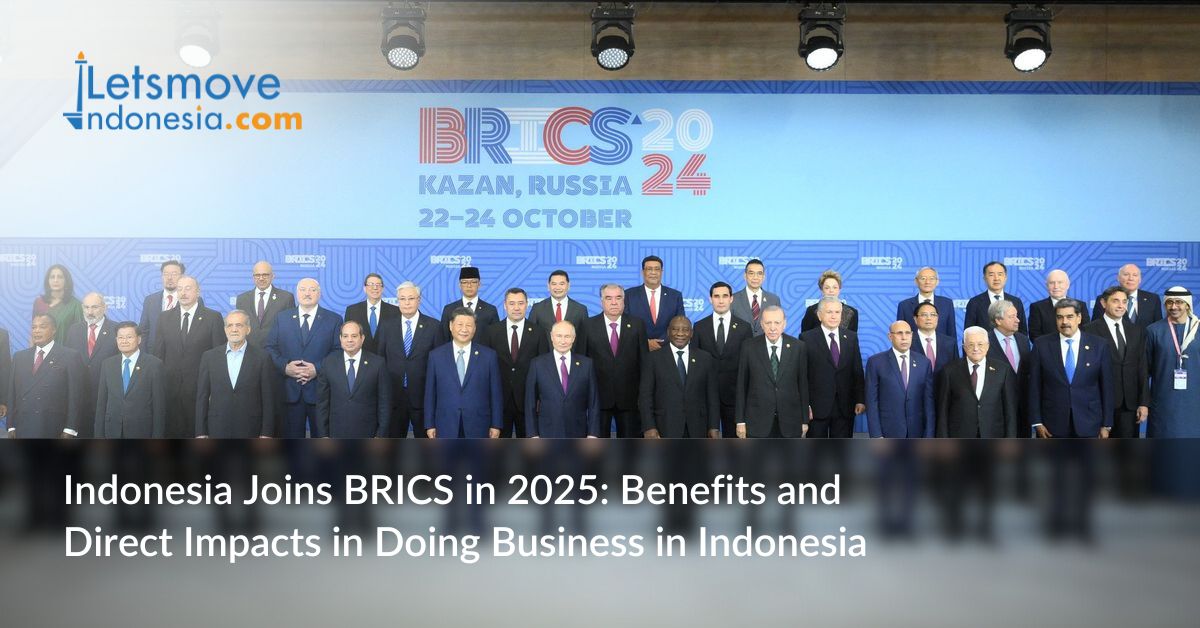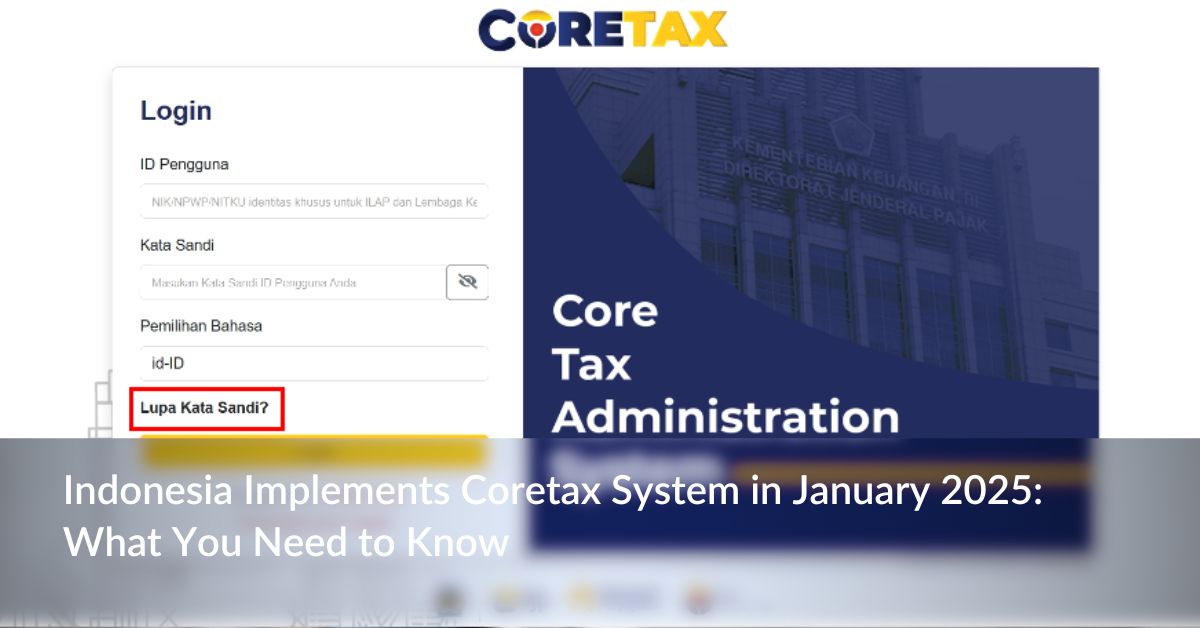A private limited company is Indonesia’s most preferred type of company among both local and foreign individual entrepreneurs and businesses because of the flexibility that it offers. In this article, we will discuss everything you need to know about Private Limited Company terms in Indonesia and what it takes to make one.
What is a Private Limited Company?
A private limited company is a legal entity characterised by limited liability for its shareholders. This means that the shareholders’ personal assets are generally shielded from the company’s debts and obligations.
The company itself is recognised as a separate legal person, capable of owning property, entering into contracts, and suing or being sued in its own name. PT (Perseroan Terbatas) is one of the type of Private Companies that is commonly used for various business activities conducted by non-government investors, like trading and manufacturing to services and consulting.
Characteristics of a Private Limited Company
The characteristics of private and public companies are significantly different, typically seen from the ownership and the value of the shares. Below we provide a comparison of the differences between these two company structures.
| Feature | Private Limited Company (PT) | Public Limited Company (PT Tbk) |
| Ownership | Shares held by a limited number of individuals or entities (minimum 2) | Shares offered to the public and traded on the stock exchange (minimum 300 shareholders) |
| Minimum Capital | IDR 50 million (approximately USD 3,300) as of 2024 | IDR 3 billion (approximately USD 200,000) or an amount agreed upon by all shareholders |
| Management | Managed by a Board of Directors and a Board of Commissioners | Same as PT, but with stricter regulations and greater public scrutiny |
| Share Transfer | Shares are not freely transferable; restrictions may apply based on the company’s Articles of Association | Shares are freely traded on the stock exchange |
| Public Disclosure | Less stringent disclosure requirements | Stricter disclosure requirements, including financial statements and annual reports |
| Fundraising | Limited to private placements and loans | Can raise capital through public offerings of shares |
| Liability | Shareholders’ liability is limited to their capital contribution | Same as PT |
| Examples | Family-owned businesses, startups, small and medium enterprises (SMEs) | Large corporations, multinational companies, state-owned enterprises (BUMN) |
Key Difference: Public vs. Private
The primary distinction lies in ownership and access to capital. Public companies can raise funds by selling shares to the public on the stock exchange, while private companies rely on private investments and loans. This public ownership also subjects PT Tbks to stricter regulations and increased public scrutiny compared to PTs.
Note: The most common public companies in Indonesia are often called BUMN, which refers to State-Owned Enterprises and are typically organised as PT Tbks (public limited companies) but have distinct ownership and governance structures.
Types of Private Limited Companies in Indonesia
In Indonesia, there are two primary types of Private PTs:
Local Company (PT)
- Ownership: Fully owned by Indonesian individuals or entities.
- Requirements: Requires at least two Indonesian shareholders and directors.
- Suitable for: Local entrepreneurs and businesses seeking to operate within the domestic market.
Foreign Company (PT PMA)
- Ownership: Allows for foreign ownership, subject to specific regulations and minimum investment requirements.
- Requirements: Can be fully or partially foreign-owned, depending on the business sector.
- Suitable for: Foreign investors seeking to establish a presence in Indonesia and tap into its vast market potential.
Advantages of a Private Limited Liability Company in Indonesia
The PT structure offers several compelling advantages for businesses:
- Limited Liability: Shareholders’ liability is limited to their capital contribution, protecting their personal assets from the company’s debts.
- Credibility and Trust: A PT conveys a sense of professionalism and credibility, enhancing your brand image and attracting potential investors and partners.
- Access to Financial Services: A registered PT can open bank accounts, access credit facilities, and participate in various financial transactions, which are crucial for business operations.
- Perpetual Existence: A PT continues to exist even if shareholders change or pass away, providing stability and continuity for the business.
- Tax Benefits: Depending on the business sector and location, PTs may be eligible for tax incentives and benefits offered by the Indonesian government.
Disadvantages of a Private Limited Liability Company in Indonesia
- Complex and Costly Establishment: Setting up a PT involves multiple administrative steps, legal formalities, and associated costs. It often requires professional assistance, which can add to the expenses.
- Ongoing Compliance and Reporting Requirements: PTs are subject to various ongoing compliance and reporting obligations, such as annual financial statement audits and tax filings. These can be time-consuming and require specialised knowledge.
- Potential for Conflict among Shareholders: In a PT, decision-making power is often distributed among shareholders, which can lead to conflicts and disagreements, especially in cases where ownership is dispersed.
- Public Disclosure: Certain information about the PT, such as shareholder details and financial statements, might be accessible to the public, potentially impacting business confidentiality.
- Double Taxation: In some cases, the PT’s profits may be subject to both corporate income tax and dividend tax, potentially increasing the overall tax burden.
It’s essential to weigh these disadvantages against the advantages when deciding whether a PT is the right legal structure for your business in Indonesia.
Steps and Requirements for Setting up a Private Limited Company
Establishing a PT in Indonesia involves several crucial steps:
- Company Name Reservation: Conduct a thorough search and reserve your desired company name through the online system of the Directorate General of General Legal Administration (AHU).
- Drafting the Articles of Association: Prepare the Articles of Association, outlining the company’s purpose, structure, and operational guidelines. This legal document must be notarised by a public notary.
- Obtaining Approval from the MOLHR: Submit the completed company documents, including the Articles of Association and other required documents, to the Ministry of Law and Human Rights (MOLHR) for approval.
- Registering with the OSS System: Create an account on the Online Single Submission (OSS) system and obtain a Business Identification Number (NIB), which serves as your company’s official identifier.
- Applying for Licenses and Permits: Secure any additional licenses or permits required for your specific business activities through the OSS system.
- Fulfilling Other Requirements: Complete additional steps, including tax registration, opening a corporate bank account, and registering with relevant authorities for social security and manpower.
Post-Registration Process
Once your PT is registered, there are ongoing obligations to fulfil, including:
- Annual Financial Statement: Submitting audited financial statements to the Ministry of Trade, if applicable.
- Tax Compliance: Filing regular tax returns and making timely tax payments.
- Manpower Reporting: Submitting mandatory manpower reports to the local manpower office.
- Other Reporting Requirements: Complying with any additional reporting obligations specific to your industry or business activities.
Comparison with Other Business Entities
While a PT offers several advantages, it’s essential to consider other business structures in Indonesia, such as:
- Representative Office: Suitable for foreign companies seeking to explore the Indonesian market without engaging in direct sales or generating revenue.
- CV (Limited Partnership): A partnership with both general partners (unlimited liability) and limited partners (liability limited to their capital contribution).
- Firma (Partnership): A partnership where all partners have unlimited liability.
- Sole Proprietorship: A business owned and operated by a single individual.
Each business structure has its own unique characteristics, benefits, and limitations. It’s crucial to choose the one that aligns with your business goals, ownership preferences, and risk appetite.
Frequently Asked Questions
Can foreigners own 100% of a PT PMA?
It depends on the specific business sector. Some sectors allow 100% foreign ownership, while others have restrictions or require local partnerships. Consult the Negative Investment List for detailed information.
How much does it cost to set up a PT PMA?
The cost varies depending on factors like the minimum investment requirement, legal and notary fees, and other associated expenses.
How long does it take to register a PT?
The registration process typically takes several weeks to a few months, depending on the complexity of the application and government processing times.
Do I need a local director for my PT PMA?
Yes, at least one director of a PT PMA must be an Indonesian citizen or a foreign national holding a KITAS or KITAP.
Can I change my business structure later?
Yes, it’s possible to convert your business entity to a different structure, but it involves specific procedures and requirements.
Is a private limited company the same as Ltd.?
Essentially, yes. In Indonesia, the closest equivalent to a private limited company (Ltd.) is a Perseroan Terbatas (PT). Both structures offer limited liability to their shareholders, meaning their personal assets are generally protected from the company’s debts.
Does a private limited company have shareholders?
Yes, a private limited company (PT) in Indonesia must have at least two shareholders. These shareholders can be individuals or other legal entities, both domestic and foreign, depending on the type of PT (local PT or PT PMA).
How long does it take to register a new company in Indonesia?
The company registration process in Indonesia typically takes several weeks to a few months. The exact timeframe can vary based on factors such as:
- Type of Company: Registering a local PT might be faster than a PT PMA due to additional requirements for foreign investment.
- Complexity of the Business: Businesses in heavily regulated sectors might require more licenses and permits, potentially extending the process.
- Completeness of Documents: Submitting all required documents accurately and promptly can help expedite the process.
- Government Processing Times: The efficiency of government agencies can also influence the overall duration.
Lets Move Indonesia: Your Trusted Partner in Company Registration
Navigating the complexities of company registration in Indonesia requires expertise and local knowledge. Lets Move Indonesia, a leading visa and business consultancy firm, offers comprehensive solutions to guide foreign investors through every step of the journey. From choosing the right business structure to handling legal documentation and obtaining necessary licenses, our experienced consultants ensure a smooth and efficient process.
Contact Lets Move Indonesia today for a free consultation and let us help you establish your business presence in Indonesia with confidence and success!
